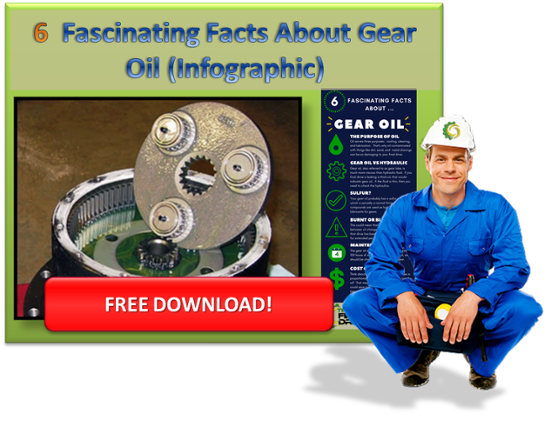The planetary on your final drive motor generates tremendous amounts of torque and requires lubrication to provide high performance and extend the life of its components. In this Shop Talk Blog post, we'll talk about lubrication's role in preventing planetary failure.
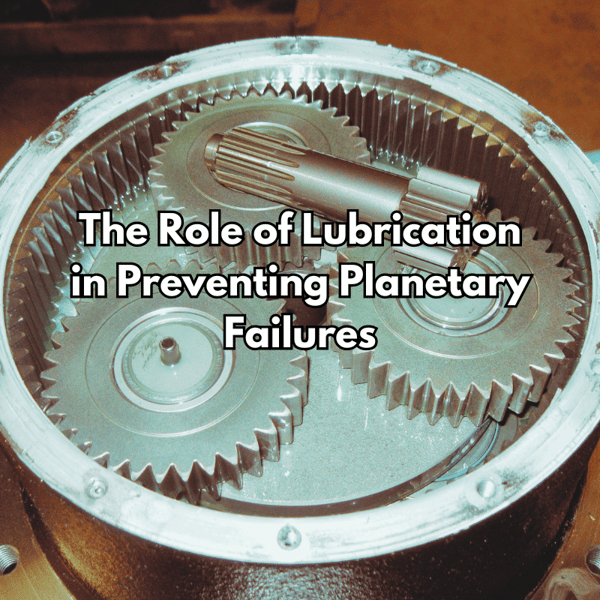
Lubricants
Lubricants serve three main purposes in machinery:
- Reduce friction
- Prevent metal-to-metal contact
- Dissipate heat
All lubricants, including gear oil, form a protective film on component surfaces. This film reduces friction which, in turn, reduces heat generation and surface wear. In addition, this film prevents direct metal-to-metal contact that accelerates wear and causes surface damage. It also conducts heat away from the surface of components to keep them cool and less susceptible to wear and damage.
Gear Oil
Gear oil is a specialized lubricant for gearboxes, vehicle differentials, and machinery. Its viscosity and additives are formulated to withstand the high pressure and extreme temperatures found in gearboxes. It also helps maintain smooth operation and, when properly maintained, extends the life of components such as gears and bearings.
Common Failures in Final Drive Motor Planetaries
There are two ways gear oil can lead to the failure of your final drive motor: insufficient gear oil and contaminated gear oil.
Insufficient Lubrication
Final drive motor planetary hubs must have a certain gear oil level to work effectively. If levels drop below that level, not all the components will be protected when the drive motor is running. This means that the protective barrier that lubricants form will not be consistently present, leading to accelerated wear. And that accelerated wear can lead to contamination as flakes, slivers, and tiny particles of metal begin to come off the contacting surfaces.
A lack of lubrication also means that friction is not being reduced as it should, which leads to heat generation. Additionally, insufficient heat dissipation occurs when there isn’t enough lubrication, and you have a recipe for disaster. Needless to say, your final drive motor will be running hot.
Contamination
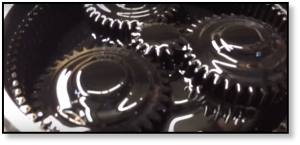
To work effectively, gear oil needs to be uncontaminated. Particles, water, and chemicals can contaminate gear oil.
Particles can enter gear oil in two ways: (1) slivers and tiny metal particles that come off contacting surfaces during operation and (2) external contaminants into the gear hub. The first way is called generated contamination which is almost impossible to prevent. However, it can be mitigated by keeping your gear oil levels at the proper level and regularly changing the gear oil. Otherwise, your gearbox will experience accelerated wear and a reduced lifecycle.

The second way -- external contamination -- consists of dirt, solid, sand, concrete dust, and other particles that usually make their way in when the gear hub is open or when a seal is leaking. As with generated contamination, this kind of contamination will speed up the natural development of wear and shorten the life of your components.
Water contamination will compromise the effectiveness of your gear oil -- including reduced friction, prevention of metal-to-metal contact, and heat dissipation. It, too, will shorten the life of your equipment.
Chemical contamination usually results from (1) aging or (2) mixing two types of gear oil together. Chemical reactions can compromise aspects of gear oil, such as its resistance to high pressure and extreme temperatures. Not only does this affect how well the gear oil works, but it can also form a sludge within the gearbox. And iyour gear oil smells like sulfur, it has aged past it's useful life and is doing more harm than good.
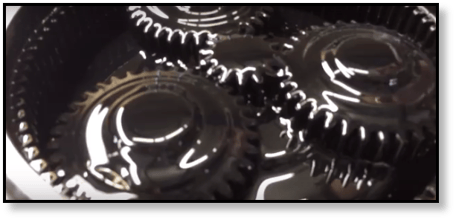
Best Practices in Lubrication for Final Drive Motors
We recommend you check the oil level every 100 hours of operation and change the oil at least once a year (and possibly more often depending on the operating conditions so check manufacturer guidelines.
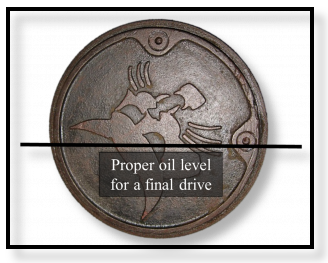
Gear oil maintenance is key! Here are some blog posts on that:
And when it comes to the type of gear oil, check your manufacturer's recommendations -- also, we have our own brand of gear oil.
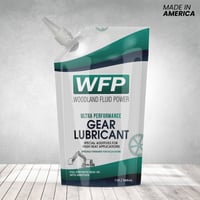
As to storing gear oil, here are some industry recommendations:
- Store gear oil in a temperature-controlled environment
- Keep it tightly sealed when not in use
- Depending on the shape of the container, don't let water collect on the top
- Only use clean equipment to add fresh gear oil to your planetary hub
Conclusion
Lubrication for your planetary can enable it to run more efficiently, extend its useful life, and provide optimum performance. However, to experience these benefits, the gear oil must maintained and kept clean.

